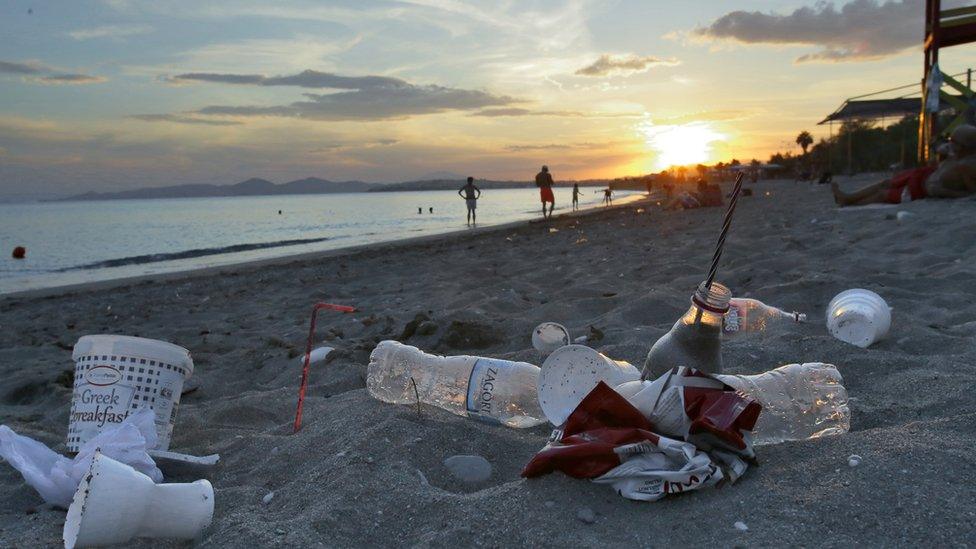UN resolution pledges to plastic reduction by 2030
- Published

Eight million tonnes of plastics enter the oceans each year
One hundred and seventy countries have pledged to "significantly reduce" the use of plastics by 2030.
After five days of talks at the UN Environment Assembly in Nairobi, a non-binding resolution was made over throwaway items like plastic bags.
An initial proposal to phase out single-use plastic by 2025 was opposed by several nations including the US.
Over eight million tonnes of plastic enter the world's oceans each year.
"It's hard to find one solution for all member states," Siim Kiisler, the UN assembly president, told journalists before the vote.
"The environment is at a turning point. We don't need verbose documents, we need concrete commitments."
More than 4,700 delegates - including environment ministers, scientists and business figures - took part in the meeting.
A series of other commitments were also signed, including ones to reduce food wastage and to consult with indigenous populations over the development of new regulations.
The assembly is the world's top international environment body, and this week's pledge will set the tone for the UN's Climate Action Summit in September.
The final ministerial statement only made only two references to man-made global warming, however, and none to the damage caused by fossil fuels that drive it.
However some campaigners have expressed concern that the final ministerial statement made only two references to man-made global warming.
Others have criticised countries like the United States, Cuba and Saudi Arabia for blocking attempts to pledge an earlier date for cutting their use of plastics.
"The vast majority of countries came together to develop a vision for the future of global plastic governance," said David Azoulay from the Center for International Environmental Law, in an interview with Reuters.
"Seeing the US, guided by the interests of the fracking and petrochemical industry, leading efforts to sabotage that vision is disheartening".
- Published7 September 2018
- Published21 March 2018
- Published2 August 2018